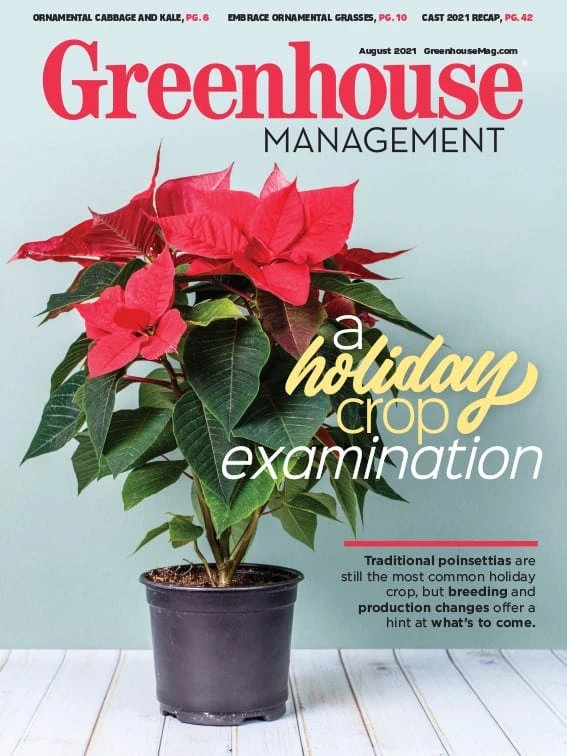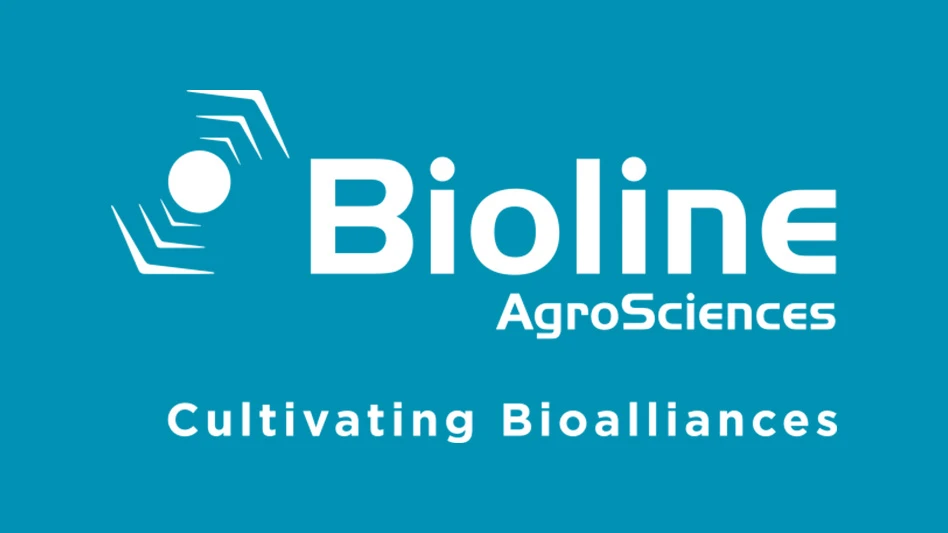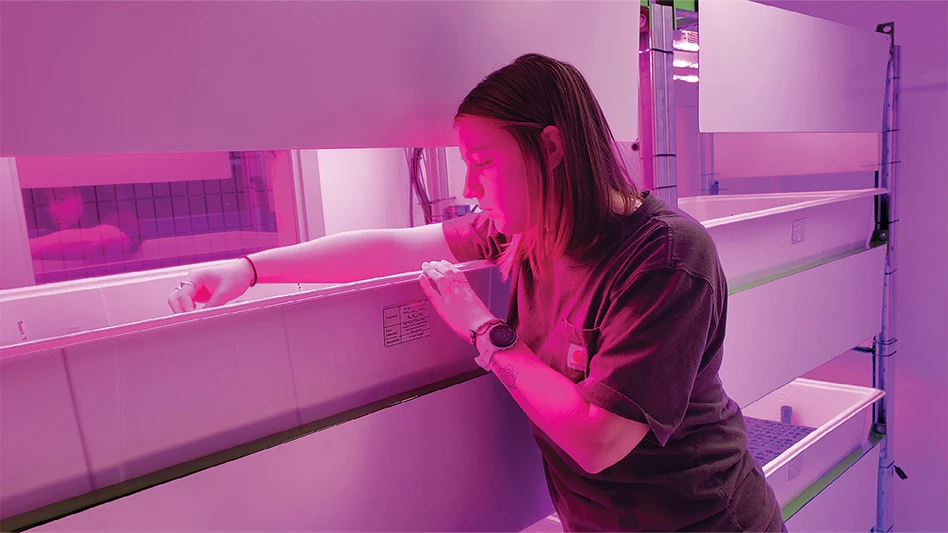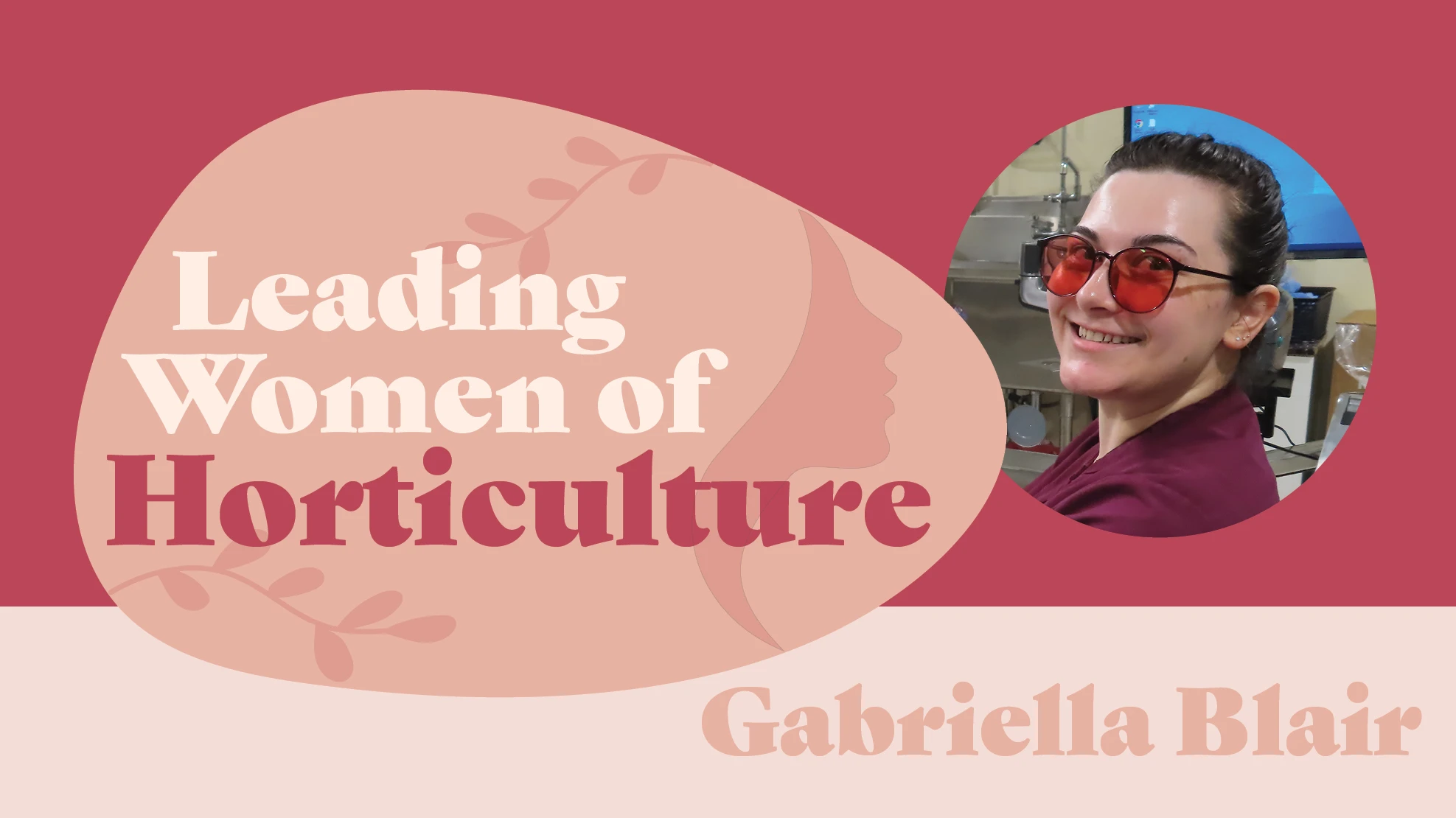Dr. Aaron Palmateer joined SePRO last month as the company’s new Technical Development Leader for Ornamentals. In his time working as a professor at the University of Florida and in the private sector, Palmateer has become one of the horticulture industry’s leading voices on plant pathology.
In joining SePRO, Palmateer says he’s excited to work directly with the company’s line of products and help growers apply them effectively. At the company, he’ll be working mostly with a portfolio that includes fungicides, herbicides, insecticides, and plant growth regulators, but also looking at developing aquatic products used in other industries for ornamental use.
“SePRO is really investing in and wanting to move forward in the greenhouse business,” Palmateer says. “Their current portfolio is really unique in a lot of ways. Just look at the insecticides — Rycar®, Hachi-Hachi® SC, Talus®, Akari® — they are all in unique insecticide resistance classes. They play well with others, so growers can really position SePRO products as part of a rotation.”
“There’s just a ton of outstanding chemistry,” he adds.
A healthy industry
In talking with growers and other industry members at Cultivate’21, Palmateer said one of his major takeaways is that plants are continuing to sell quickly and often in big numbers. This trend began in 2020, but at least for now, it appears to be continuing.
“Plants are flying off the shelf quickly,” he says. “There’s less need for longevity of products and some growers are seeing less pest pressure because they aren’t having to hold plants as long. We’ve actually seen less reliance and need [for some products right now] because of how fast things are moving. I’ve heard that from a number of growers.”
Palmateer also notes that growers are selling product that, in a normal year, they might not have been able to sell. This applies to everything from plants that aren’t fully healthy to varieties that aren’t clicking with customers and everything in-between.
“I have not heard anybody say that they aren’t doing well,” he says.
Up-tempo production
When production is moving that fast, Palmateer says it is important to still have a strategy in mind to prevent pest and disease issues. Just because plants are leaving the greenhouse sooner doesn’t mean they are immune to pest pressure or disease. It also might mean they rely more on insecticides or miticides instead of a plant growth regulator (PGR).
“Some growers will want to take something that is highly systemic and has a higher residual and use that,” he says. “But they might only have to treat one time before selling. There are other cases where you are battling flare-ups you have to deal with in a short period of time. Because of the diversity of ornamentals, though, it really depends on the growers and the type of crop.”
Palmateer also cites mealybugs as an illustrative example of an issue impacted by shorter production cycles. Before the pandemic, he notes that it was a “hot problem” and hard for growers to get a handle on it. And while it is still an issue in an area like South Florida, plants are spending less time in the greenhouse and not running up against mealybugs at a noticeable level, if at all. He says the same has been true for thrips over the last year-plus.
“This shorter production cycle really just requires less input,” he says. “But it really comes down to how long crops are being held before being shipped out.”
Palmateer’s role at SePRO
In his new position at SePRO, Palmateer says one of his major roles will be supporting the company’s sales team by working with growers and the overall product lineup. The hope, he says, is to limit confusion growers have and to help them find the right product for their operation.
Another major responsibility is working with both research and regulatory to continue to expand the product portfolio. As new products are developed from research, he’ll be working with SePRO products in development in trials at both universities and in the private sector. On the regulatory side, he’ll help write SePRO labels to meet government regulations, but also make the labels easy to read for growers.
Palmateer also notes that, in working for a company like SePRO, he likes collaborating with others and operating in a team environment. During his time as a professor, he says a lot of his work with self-started and done on his own. Here, he can be part of something bigger.
“My role is going to touch every part of the business,” he says. “It’s got some research and development work; it’s got developing labels and working with marketing and sales. I’m really excited to get going. Everyone on this team is driven for success and everyone benefits from everyone’s success.”

Explore the August 2021 Issue
Check out more from this issue and find your next story to read.
Latest from Greenhouse Management
- CEA Alliance celebrates bipartisan introduction of Supporting Innovation in Agriculture Act
- Dümmen Orange North America celebrating 25th anniversary in 2025
- CEA HERB Part 1: Best management practices for culinary herbs
- Lawsuit challenges new H-2 visa rules
- CEA HERB Part 2: A guide to increasing the sowing density of culinary herbs
- Illinois Landscape Contractors Association changes name to Landscape Illinois
- 2025 Proven Winners Horticulture Scholarship applications now open
- ICL’s Gemini Granular herbicide now registered for use in California







